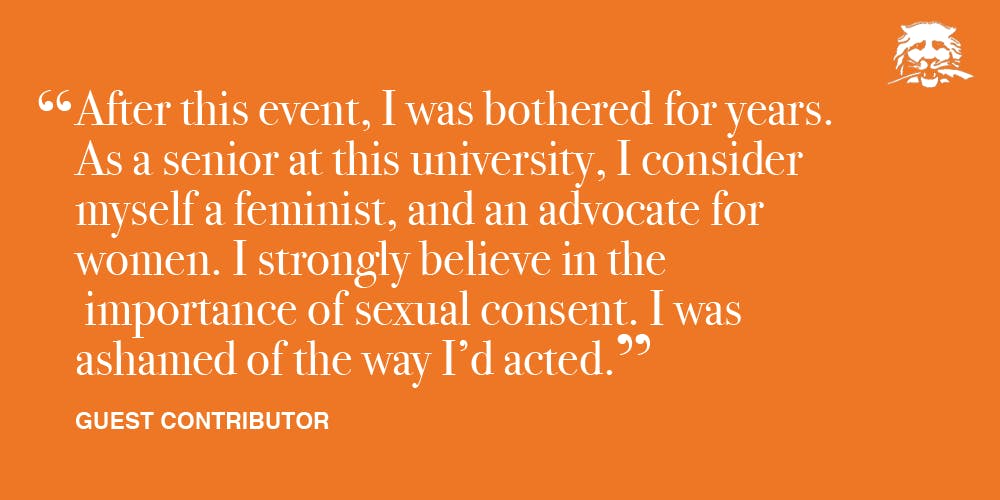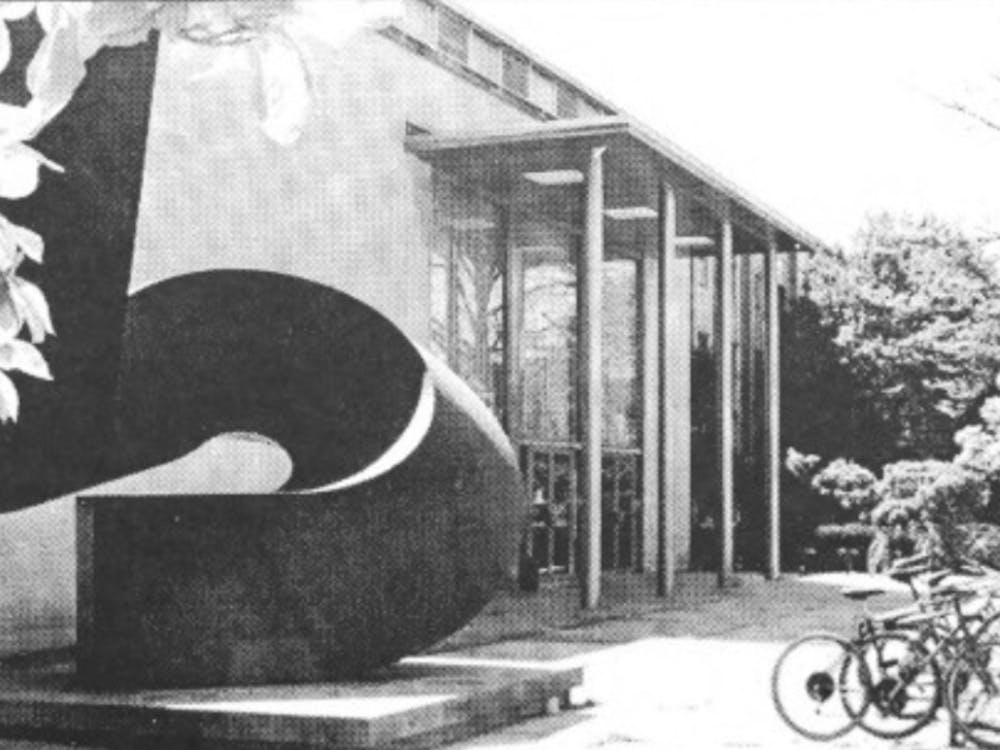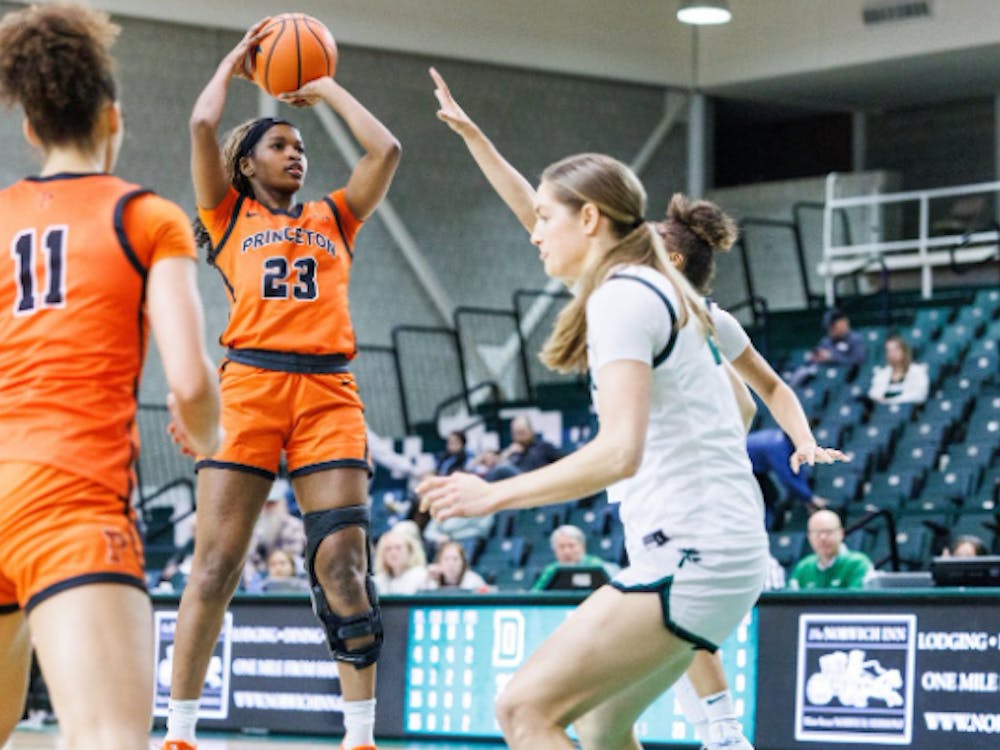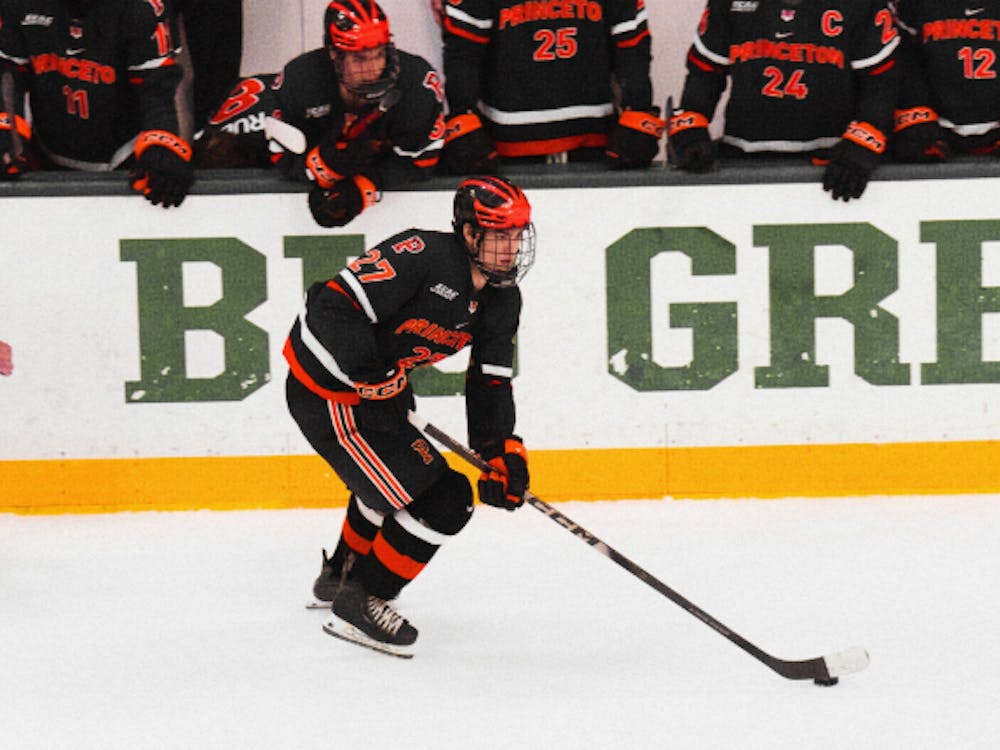The #MeToo movement has come, but it has not yet gone; while the testimonials of women who were sexual harassed have largely faded from our Facebook and Twitter feeds, the issue of sexual harassment — in the workplace, in the classroom, at the bar — has continued to dominate public discourse. In the wake of the allegations against numerous seemingly laudable men — Harvey Weinstein, Louis C.K., even our own Professor Sergio Verdú — I’ve come to reflect on my own experiences with women on Prospect Avenue. I’d like to say me, too. I, too, have been the problem through what seems to be innocuous behavior typical on the Street, and I posit to you that in order for men to become more effective allies as we work to create a more equitable and safe world for women, we must accept and grapple with our own socio-sexual transgressions and their consequences to create a dialogue in which men can positively contribute to the #MeToo movement.
When I was a freshman, I found myself largely confused by what appeared to be the murky sexual politics of the college campus. It’s no secret that Princeton is a campus largely hostile to dating, as many students largely prefer to engage in non-committed sexual relationships. The standard cost-benefit analysis appears to suggest this method of engaging in relationships extricates students from the stickiness of feelings and emotional attachment, while continuing to fulfill sexual desires. However, it fails to account for the growing pains many students, including me, face when first coming to Princeton, struggling with questions such as the following: What does it mean to hook up with someone? What does that body language look like? How does one initiate a hook up?
Now, it isn’t that hooking up is in and of itself a bad thing; however, I found that the tendency for students to hook up complicated the ways I approached women and the bandwidth of behavior I believed was acceptable. What initially appears to be cute persistence quickly gives way to sexual coercion. We see this in the cases of Aziz Ansari and Michael Ellsberg, and I found myself in a similar situation with a girl I’d asked a little too obstinately to dance my freshman year, to the point that she’d left the club, clearly uncomfortable. Upon speaking to many of my male colleagues, I found that they too struggled with similar questions, and had been in similar situations.
After this event, I was bothered for years. As a senior at the University, I consider myself a feminist, and an advocate for women. I strongly believe in the importance of sexual consent. I was ashamed of the way I’d acted. The girl I’d approached at the party was a friend at the time, but took a couple years off school. I happened to run into her out of the blue a couple months ago, and mustered up the courage after small-talking with her for a couple minutes to apologize for my behavior that night. Don’t worry, it wasn’t a big deal, she smiled. All’s forgiven.
I was initially afraid of how she would react, but after she and I spoke, I came to the realization that the acceptance of my behavior allowed me to better understand how and why people — especially college students — so often struggle with issues of consent and sexual coercion. As a former eating club officer, I found myself on the lookout during nights out on the Street, sensitive to the needs of individuals in potentially uncomfortable positions. Most importantly, it allowed me to expose and counter my biases to better hold myself and other men accountable for their actions with regards to women on the Street. Candid reflection on my own behavior allowed me to approach and mentor underclassmen on the importance of consent without a holier-than-thou approach. Dancing closely with others, or pressuring someone to drink, or even asking someone to dance too persistently can seem like small transgressions, but they total toward a University environment that is fundamentally unsafe. If we cannot hold ourselves accountable for our behavior, how can we hold others accountable?
I did not write this piece to suggest that women are weak, or need protecting. With Reunions around the corner, I wrote this piece for two reasons: For one, it is crucial that we emphasize the importance of communication in all of our sexual and even non-sexual relationships in order to create a safe environment for everyone. But most importantly, some of the questions men have frequently asked over the course of the #MeToo movement have been the following: What can we do? How can we be better allies? Accepting that we have been part of the problem — and influencing others to be better through our candid self-reflections — seems like a pretty good start.
Sri Nimmagadda is a senior in the Wilson School. He can be reached at sriduttn@princeton.edu.








